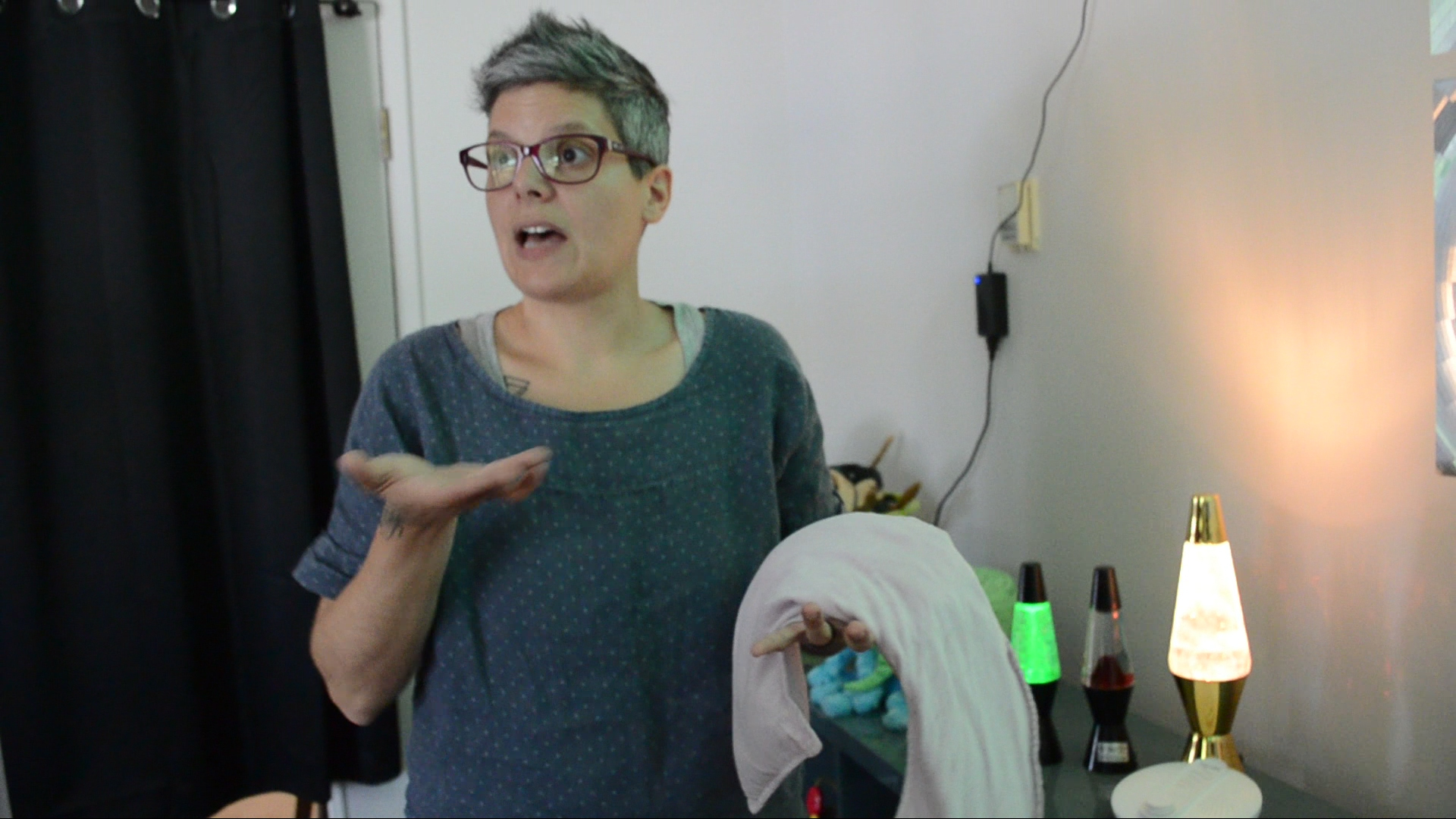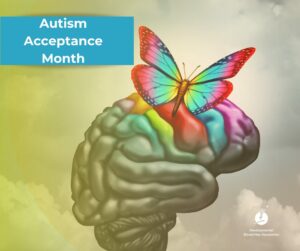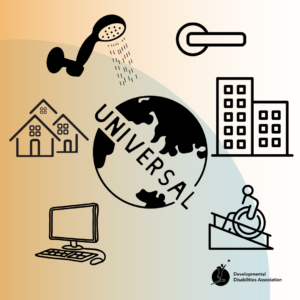To say that Keegan is just a residential manager at DDA would be a bit of an understatement. In addition to managing a residential group home for people with developmental disabilities, she has been able to use her interests and skills by working on some ‘special projects’, to enhance the lives of the people we serve.
The projects she has worked on range from ushering in an antique yet fully-functional loom in one of the homes, to purchasing Snoezelen room equipment, and to researching new accessibility technology to introduce to the people she supports.
Her unconventional and tenacious productivity within her current role is reflective of her journey to DDA; after majoring in classical saxophone, she lived in Arviat, Nunavut for about a year, teaching music and English to high school students. Her work in Nunavut then led her to pursue a post-grad certificate in special education, as she wanted to focus more on creating greater access to services for all individuals.
Keegan’s determination to help others, coupled with her unique experiences, has led her to pursue her passion through DDA.
How long have you been working at DDA?
It will be two years in November.
What led you to DDA?
I used to work in special education, but left to be closer to my family after my dad was diagnosed with Lewy Body dementia. When I came back, it seemed like a really natural transition for me to take everything that I’ve done in special education, and everything I experienced in that last year of compassionate care at the end of life and helping people through the dying process, and translating all of that into working with adults with developmental disabilities.
I interviewed at several places before I chose DDA, and the thing that really sold it for me was that I would be working with people who had dementia, and were dealing with a lot of the same complex issues that I had to navigate with my experience with my father.
Did you know anything about DDA before you arrived?
Not really. I’d been working in the school district for a very long time, but when I came back to BC from Ontario, I was looking for something different. Coming from working for a school district, it’s a very structured “9 o’clock in the morning ‘til 3 o’clock in the afternoon” type of day.
I think what interested me about the idea of community living was it encompasses all aspects of their lives. You have that kind of exposure to it, and enriching someone’s life from all different perspectives was really interesting to me.
What are you most excited/passionate about in your work, or your life?
I am a fan of efficiency. I like to find new ways to approach old problems. Whether that’s finding new technologies that can do things better or it’s using an old technology or an old strategy in a new way. DDA’s awesome with that kind of innovation because we had the ability to develop things like the Snoezelen room. I have that ability to take my ideas from the very beginning, and see it come to life. I think that the whole idea of innovation as a way of creating accessibility is probably what I’m most interested in.
How did you get into tech, and become so good at it?
Tech is something that has never been hard for me, and a lot of it is what I’ve picked up along the way. I have a degree in classical saxophone, and this is where it all started from. I had to get really good at using my computer to input music, so I learned a really well-rounded approach to using technology in the area of music. Especially with the new Apple innovations like iPads that were coming out when I was in school, which was what we were learning about, and how to use them with instruments.
After I’d been with the school district for a while, I left BC and had my own private music studio specifically for kids with autism and challenging behaviours that otherwise weren’t able to go to music lessons, because there was no behavioural specialist who’s also a music teacher. So I had kids from all over the Lower Mainland who were coming to my studio for music lessons. Part of that was using these cool music apps that I’d learned about in university, and the new ones coming out too, to help them get engaged with music. A lot of these guys loved using iPads, but it was a cause-and-effect game, so we would play something on the piano that would show up on the iPad. It was using that as a bridge.
Another experience that has allowed me to learn more about accessible tech was during my time in Ontario, I was working as an Applied Behavioural Analyst Instructor Therapist with kids with autism, or kids who were non-verbal. I had to learn how to use accessible communication apps. Part of that was training other people, so I learned how to program them. It sort of gradually built up from there. It’s all because I’ve had a problem with a client, or a resident, someone who I’ve supported in community, and I had to go find a solution. It’s really easy for me to bridge the two.
What has been the most interesting or fulfilling experience you’ve had working at DDA (compared to the other interesting job positions you’ve held)?
I think what I love about DDA is that its services are across the life cycle. Having worked for a lot of different organizations, I can say that DDA really does reach for that standard and provides services from birth to death.
My time at the current residential site I manage has been particularly rewarding. We are supporting individuals who are in the later stages of their lives, and are asking:
“How are we still providing that kind of access to the community? How are we providing fulfilling activities? How are we making sure that they’re getting all of the daily experiences in their lives that the rest of us get out of our local communities?”
We aim to provide all of this access, activities, and experiences while knowing that we’re still managing complex medical issues, and that care is a lot more complex than it was when they were 20 years younger.
This is what I find to be really fulfilling, particularly when you’re seeing small changes that slowly progress over time, and you get to realize the impact you’re having. One of the major things that prompted me to move out of the education field, is that you see these kids for six hours a day for an entire year, and then you never see them again. So you never get to see that you’ve effected change; but in DDA, you do. Some of our residents have been here for over 40 years! And knowing that progression of where they were at, to the challenges along the way, to how we’ve supported them to help them overcome that, it is really fulfilling to be able to see that.
I think that drive to see change is what motivates me.
For more on Keegan’s perspective into DDA, read Part 2 of her interview.
We are currently hiring for our Residential Services Program. Join us today.



